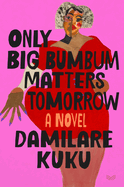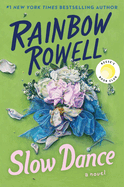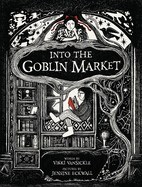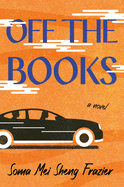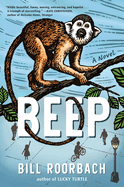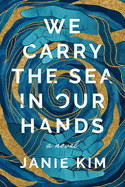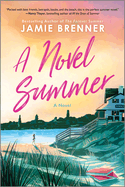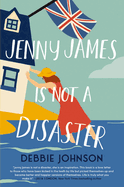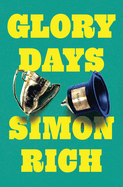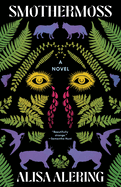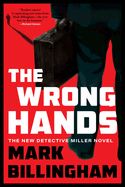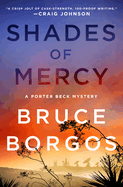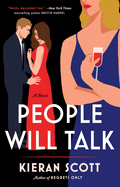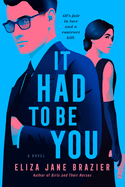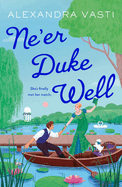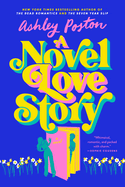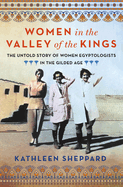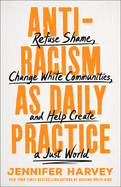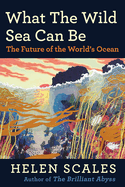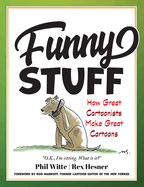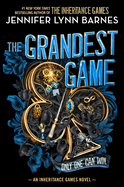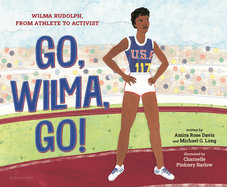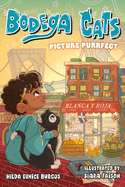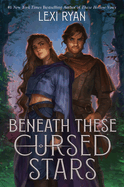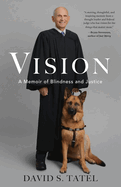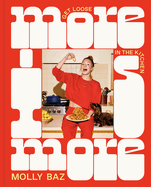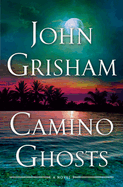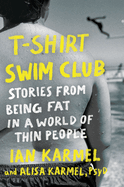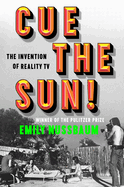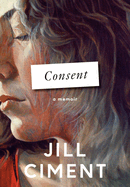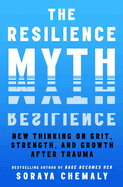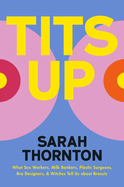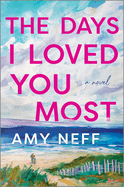Friday, August 2, 2024
We bet there's a belly laugh or two waiting for you in one of the stellar titles reviewed in today's issue. Is it in Only Big Bumbum Matters Tomorrow by Damilare Kuku, the "sharply insightful, bitingly funny, wondrously poignant" story of a woman's search for true love and acceptance through cosmetic surgery? Or perhaps it's in Beep by Bill Roorbach, the madcap adventure of a Costa Rican squirrel monkey determined to save the planet from environmental collapse, told with both humor and optimism. Or maybe "learning how the sausage is made" will have you doubled over as Philip Witte and Rex Hesner offer their savvy analysis of New Yorker-style gag cartoons in Funny Stuff. Plus, the "mischief-rich, briskly rhyming fairy tale" picture book Into the Goblin Market presents a quick-thinking farm girl contending with enchanted adversaries.
Meanwhile, in The Writer's Life, It's Elementary author Elise Bryant remembers playing Little Women with her classmates, and the YA novel that prompted her to begin writing her own.
Only Big Bumbum Matters Tomorrow
by Damilare Kuku
Undoubtedly, 2024 is Damilare Kuku's year. Her debut collection, Nearly All the Men in Lagos Are Mad, proved she's a formidable storyteller. She further displays that prowess in her first novel, Only Big Bumbum Matters Tomorrow, a polyphonic masterpiece that opens with a 20-year-old woman's proclamation: "I plan to renovate my bumbum in Lagos, live there for some time, and hopefully meet the love of my life!" Her timing is awkward: the assembled family has just heard the reading of her beloved father's will. Shock aside, the one thing Témì can say is "Nigerian families can be an obstacle in a girl's journey to a figure eight."
For her entire young life, people have relentlessly judged Témì's body. The invasive barrage about her backside--"blackboard," "mopstick," "inverted"--has been never-ending from family, friends, even strangers on social media. But Témì's declaration exhumes all manner of buried secrets as to how self-mutilation seems to be a young woman's sole path to finding true love and therefore happiness. Despite their sizable bumbums, though, what was labeled "love" hasn't been kind to the women in Témì's life: her mother, Hassana, survived assault; her older sister, Ládùn, battled desertion then lies; both her paternal and maternal aunts endured abuse and abandonment. So-called true love (with others) even steals away her best friends. And yet Témì's insistence on surgery persists: "I am doing it for me."
Kuku's novel is not unlike her impressive collection--sharply insightful, bitingly funny, wondrously poignant--except her stories here are also intricately, exquisitely interconnected. Témì becomes that everywoman searching for acceptance and affirmation--by any means necessary. --Terry Hong
Discover: A young Nigerian woman is determined that surgical backside enhancement is the only path to finding true love and happiness in Damilare Kuku's wise, funny, irresistible debut novel.
Off the Books
by Soma Mei Sheng Frazier
It's not often that a road trip novel prompts readers to learn more about geopolitical atrocities, but that likelihood is high with Off the Books, the debut novel from Soma Mei Sheng Frazier. At first glance, the story seems to be one thing: a young protagonist drops out of college and starts a car service for clients who require more discretion, sex workers mostly. When Mĕi agrees to drive Henry Lee and his mysterious suitcase across the country, she insists on a certain work ethic: "My clients' business is none of my business. But," she adds, "I won't be complicit in bad shit." As the moral ambiguity of what she is actually transporting becomes clear, so, too, does the complexity of Mĕi's family history and personal baggage.
The narrative moves along at a decent, if sometimes uneven, clip. Bits of Mĕi's story (and that of her American father and Chinese mother) get tangled up with the unfolding truths around what Henry is doing, as well as the people and politics involved. Significant portions of the novel take place in Mĕi's mind as she wrestles with memories she'd rather not engage and her (and her country's) responsibility regarding the Uyghur genocide and terrorism perpetuated by Chinese officials: "Let history continue to record our contradictions." Though it could be argued that Frazier attempts too much, it's undeniable that her first novel raises fascinating questions about journalism, morality, and the power of relationships to heal all manner of brokenness. Off the Books is a surprising ride, but one worth taking. --Sara Beth West, freelance reviewer and librarian
Discover: Off the Books is a road trip novel that raises fascinating questions about journalism, morality, and the power of relationships to heal all manner of brokenness.
Beep
by Bill Roorbach
Beep the Costa Rican squirrel monkey is an endearing doomsayer with a dire warning. The eponymous hero of Beep by Bill Roorbach generously detours from his quest for a mate to "moodle" an alert to "you-mens": the world is in trouble. With Beep, Roorbach (Lucky Turtle; The Remedy for Love) has created a narrator equal parts credible and curious as he embarks on his journey from "monkeydom." His unexpected adventure begins when a human girl named Inga, who is vacationing in Costa Rica, camouflages Beep among her "stuffees" and smuggles him onto a "meddle roarbird." He's hopeful that his new friend--obviously a "sensitive" among the you-mens--is moving him toward finding his queen. But Beep finds "Madhattan" and the extent of "degradation of the plamet" horrifying. Secure in Inga's care, Beep is inspired when the two of them hear Greta Thunberg speak, and a trip to the "Bronzoo" prompts action: the "prizzoners" there, "electro-separated" into enclosures, hail him as "Freemonkey," the long-awaited hero of a prophecy of liberation.
Readers will quickly moodle the animals' language and Beep's intuitive sense of the urgency of their plight, which reflects the planet's crisis. Beep accepts his leadership role as Freemonkey yet never loses his sense of humor ("I monkey-splained, forgive me") or his optimism that he will meet his mate, as he, Inga, and the captives combine their skills to outwit the zoo staff. The hilarity of the breakout and Beep's confidence that sensitive humans will save the planet--plus the sweet love story underlying his quest--make Beep an entertaining and hopeful novel of Earth's environmental emergency. --Cheryl McKeon, Book House of Stuyvesant Plaza, Albany, N.Y.
Discover: A Costa Rican squirrel monkey finds himself in New York City, where he warns of environmental disaster while continuing his quest for a mate in this sweet, entertaining, and hopeful novel.
We Carry the Sea in Our Hands
by Janie Kim
Janie Kim's intriguing debut novel, We Carry the Sea in Our Hands, joins the growing ranks of books about sea creatures--think Remarkably Bright Creatures, Venomous Lumpsucker. Abby Rodier is a 24-year-old California research scientist studying sea slugs for their "connections to the origins of complex life on Earth." She's just learned she was a "drop-box baby," meaning she was surrendered into a box attached to the wall of a church in Seoul. She figured out in fourth grade she was adopted--neither her Korean mother nor her Scottish-heritage-way-back father had widow's peaks: "that was how I learned that biology can be so exquisitely, unrelentingly precise." Abandoned soon thereafter by both adoptive parents, Abby was claimed by her best friend Iseul's family as their own, forever. Over the following years, Abby chose a "self-inflicted purgatory" of not knowing about her birth--until now. Science, she's convinced, will provide all the answers. Along the way, she'll also prove why women are smarter.
Kim, a molecular biologist pursuing a Stanford University Ph.D., transforms her undergraduate Princeton University senior thesis into a fascinating bildungsroman. Double-take-deserving phrasing ("chimeric 'Konglish,' " "Mosaic of Exasperation") and pointed descriptions ("The weekend is like picking out a footpath through broken glass"), however, aren't quite enough to ignore narrative imbalances: more storytelling, less drawn-out explanatory science would undoubtedly have yielded greater resonating impact. Abby's yearning, nevertheless, promises intriguing tension and delivers emotional rewards, most particularly about creating--and preserving--families. --Terry Hong
Discover: Janie Kim adds to the growing library of sea-creature fiction with her impressive debut, We Carry the Sea in Our Hands, in which an adopted young lab tech uses science to discover her origin.
A Novel Summer
by Jamie Brenner
In A Novel Summer, Jamie Brenner (Drawing Home; The Husband Hour) celebrates second chances, love, and the magic of summer in Cape Cod.
Shelby Archer hopes that a summer back in her beloved quaint beach town will provide an escape from her worries. Shelby's first novel was inspired by her college best friends and her favorite place: Provincetown, Mass., on Cape Cod. It secured her a spot on the bestseller list and in the "beach books" sections of bookstores, but it also led to her breakup with her boyfriend, Justin, and one of those college best friends, Hunter. Although she's unsure how to proceed with her second novel following the problems caused by the first one, Shelby puts her uncertainties aside when Colleen, the third member of her college trio, asks Shelby to temporarily manage her family's bookstore, Land's End Books.
The arrival of a second bookstore in town offers her the perfect inspiration for her second novel and even more determination to keep Land's End up and running. The bookshop rivalry, the discovery that Justin's new girlfriend runs the new bookstore, proximity with her ex-boyfriend, and failed attempts at making amends with Hunter all make waves for Shelby.
Shelby's journey as an author, friend, and partner is bumpy and ultimately rewarding. The entire cast of Provincetown characters makes the setting extra charming as readers follow their personal challenges alongside Shelby's. With the end of the season and her second novel deadline on the horizon, Shelby must choose what is most important to her and learn how to make her life as picturesque all year round as summer is in Provincetown. --Clara Newton, freelance reviewer
Discover: When Shelby Archer's bestselling first novel causes waves in her personal life, she returns to a picturesque beach town on Cape Cod to find inspiration and make amends in this charming novel.
Jenny James Is Not a Disaster
by Debbie Johnson
Debbie Johnson (The Moment I Met You; Maybe One Day) has written a sweet story of redemption and second chances in Jenny James Is Not a Disaster. Almost two decades ago, 17-year-old Jenny James ran away from her Cornwall home with her boyfriend and has been estranged from her parents ever since. Jenny got pregnant, her boyfriend left when her son was two, and single motherhood has defined Jenny's life. She and Charlie never have quite enough, but they rent a cute coastal cottage, and she's made sure that Charlie has had as many opportunities as possible.
Now 36, with a son about to leave home, Jenny is contemplating what her life will be like as an empty nester when suddenly everything changes drastically. In one day, her job is made redundant, her car breaks down permanently, and her lovely cottage falls off a cliff into the sea.
Forced to rethink her life, Jenny turns to her gruff neighbor, Luke (who lives in a motorhome) for advice. And when Luke suggests a road trip as a chance to escape their currently dreary circumstances, Jenny and Charlie jump at the opportunity. Little do they know that the trip across England is going to change their lives forever.
Witty and thoughtful, Jenny James Is Not a Disaster has the perfect amount of banter and makes for a delightful vicarious tour of the English countryside, ideal for Anglophiles longing for some armchair travel. As Jenny finally faces her issues with her parents and discovers that Luke is more handsome than she realized, readers are sure to root for Jenny James to be a success. --Jessica Howard, freelance book reviewer
Discover: In this sweet novel, a 30-something woman gets an unexpected chance at a better life after an epically bad day turns everything topsy-turvy.
Glory Days
by Simon Rich
Fans of Simon Rich's wise-guy brand of comedy are in for more absurdist fun in Glory Days, a collection of humor pieces, some of which first appeared in the New Yorker. Rich (New Teeth) specializes in the off-the-wall premise taken to extremes. Take "History Report," a futuristic tale in which a child has to write a paper for school. The child interviews great-grandfather Simon, "the oldest person in my family who is still alive," because he was one of only a few men to flee with women and children on an Escape Pod "when Earth became too hot to live on." In "Mario," potty-mouthed Super Mario is turning 40, has arthritis and a bad back, and needs a less physically demanding line of work. His brother's husband hands him What Color Is Your Parachute? and suggests he pursue his marketable talent for plumbing.
That's the sort of zaniness one finds in these pieces. If most are clever rather than hilarious, the clever ones are undeniably so. Among them are "Punishment," in which the Lord has second thoughts about punishing Adam and Eve and fears humans "are becoming bad people" due to his disciplinary methods; "Tooth Fairy," in which a fairy who works for ToothCo, "the big refinery in Fairy Land," has trouble with the matching-pajama-clad parents of the Tooth Producing Unit--i.e., child--they're assigned to; and "Minutes," the record of a co-op board meeting that turns violent as pent-up resentments spill out. Some pieces are better than others, but the standouts are great fun and guaranteed to delight the wise-guy crowd. --Michael Magras, freelance book reviewer
Discover: Simon Rich's Glory Days is a collection of humor pieces in which he takes off-the-wall premises and carries them to absurdist, satisfying extremes.
Mystery & Thriller
Smothermoss
by Alisa Alering
With their debut novel, Alisa Alering does something both grand and understated--they splice genres, like a gardener with pruning shears who creates a new hybrid orchid. Smothermoss is self-assured, it is bodacious, and it is beautiful.
The novel contains aspects of a thriller: two women are found murdered on the side of the mountain, and the killer is still out there. It also contains elements of an LGBTQ+ coming-of-age story: Sheila struggles to come into her own as she is treated like an outcast by her community, dealing with poverty and her sexual identity, while her strange younger sister, Angie, stalks the mountain, ready to pounce on the impending Russian invasion (this is the 1980s United States, after all). The novel is also tied up in the gothic tradition of Shirley Jackson; Sheila feels the weight of a rope around her neck and meets a mysterious boy with a blood speck in his eye who sees way more than he lets on. Instead of castles, there are the spires of Appalachian oaks; instead of the walls talking, the mountain does. "The rabbit women's blood runs along the mountain's skin." The mountain feels, it gesticulates, it undulates under the feet and the will of the people who live on top of it. Nothing goes unnoticed here, and this is superbly reflected in Alering's writing. Every feeling, every nuance, every tic of a cheek and every gesture is noted. Alering is a poet in prose, an alchemist with a pen, and Smothermoss delights and terrifies. --Dominic Charles Howarth, book manager, Book + Bottle
Discover: With a poetic license for the natural world that delights and terrifies, Alisa Alering delivers a haunted queer coming-of-age thriller.
The Wrong Hands
by Mark Billingham
Some British crime series seem tailor-made for a classy Masterpiece Mystery treatment... and then there's Mark Billingham's Detective Miller books. The Wrong Hands, the follow-up to The Last Dance, is both a solidly crafted thriller and a bawdily funny caper full of below-the-belt humor, this time resulting from what one character dubs "Toiletgate."
The Wrong Hands begins with a Blackpool railway station sting operation gone wrong: in the men's loo, someone runs off with a briefcase that the police were expecting to be handed off to a known criminal, thereby tying him to a local murder. (The criminal's name will be familiar to readers of The Last Dance.) Among the coppers now seeking the briefcase is the capable but unfiltered Detective Sergeant Declan Miller, whose work partner has resigned herself to his penchant for "passing on information neither she nor anyone else needed to know."
The outsize talent of Billingham, who's also behind the Tom Thorne books (Bloodline; Their Little Secret), can be measured by the ease with which he balances this series' humor with its central tragedy: Miller's wife, also a detective, was recently murdered on the job; the incompetence of the team entrusted to catch her killer is a topic of Miller's periodic chin-wags with her ghost. Omniscient narration serves all the book's main players, but chapters close to Miller's perspective deliver the greatest rewards, as when he tussles with colleagues about nonsense, such as whether having hands for feet would be better than having feet for hands. --Nell Beram, author and freelance writer
Discover: The second book in the DS Declan Miller series, which revolves around an incriminating briefcase, is both a solidly crafted thriller and a bawdily funny caper full of below-the-belt humor.
Shades of Mercy
by Bruce Borgos
Bruce Borgos's second novel featuring Nevada Sheriff Porter Beck barely gives his well-defined characters a moment to breathe as Shades of Mercy delivers a heady brew of police procedural, rural noir, and international espionage.
Lincoln County's proximity to Las Vegas brings big-city problems, including an increase in drug overdoses, and the latest death is one of Beck's oldest friends. Beck has hardly begun to investigate the drugs' source when he's asked to accompany Special Agent Ed Maddox of the Air Force's Office of Special Investigations to the remote, opulent ranch owned by Beck's childhood friend Jesse Roy. The night before, a remotely piloted aircraft exploded during Shiloah Roy's ritzy 17th birthday party. The only casualty was Jesse's prize bull. More high-tech, remote attacks on Roy's property point to Mercy Vaughn, a 16-year-old hacker serving time at a juvenile detention facility where Shiloah volunteered. Mercy's computer skills attract the attention of a Mexican drug cartel and a Chinese espionage agent.
Shades of Mercy smoothly glides from local crimes to global intrigue, led by expertly crafted characters. Beck's military background makes him insightful, leading him to wonder how Roy suddenly became so rich, his ranch filled with signs of "wealth in a wealth-less county." Mercy's murky motives become a linchpin in the area's crimes. Beck's sister Brinley Cummings's expertise with guns, which led to a career as a weapons expert on movies, is another skill that Borgos folds naturally into the plot.
Borgos's clear vision of Shades of Mercy begins on a high note that elevates to a rousing finale. --Oline H. Cogdill, freelance reviewer
Discover: A small-town sheriff with a military background investigates remote attacks on a rancher's property in this gripping thriller that melds a police procedural with international espionage.
People Will Talk
by Kieran Scott
A high-society wedding in the New Jersey seaside resort town of Cape Crest ends in disaster in Kieran Scott's People Will Talk. As Kate Brian, Scott (Regrets Only) is a writer of bestselling teen fiction, including the Private series; here, she creates a juicy mystery featuring beautiful people, private jets, a brawny butler, and a perfect beachside backdrop for the Instagram influencers invited to the festivities.
Centered around the suspicious death of an unpopular socialite on the night of her extravagant nuptials, Scott's narrative alternates among the three women who are suspects in the murder investigation. The deceased is Tilly Dansforth, an heiress and mean girl who snatched heartthrob and fellow elite Peter Frank from right under the nose of his girlfriend, Maya Romero, a Wimbledon champion. Scott reveals Maya's backstory, including her rise to tennis fame and her romance with Peter, alongside that of wedding planner Catherine Farr and local bakery owner Leanne Gladstone. Each has a motive for murdering Tilly, but there is no shortage of people who detested the victim, including Peter's controlling mother, Camilla.
Tilly's death was caused by "the most decadent chandelier money could buy"--a monstrously elaborate 300-pound wedding prop insisted on by the bride--that fell and crushed her. As the police investigation gathers steam and Peter's cheating heart pines for Maya, shocking betrayals come to light that will alter the lives of all three women forever.
This engrossing mystery proves that all the money in the world can't shield a bride from her worst excesses. --Shahina Piyarali
Discover: Three women are suspected of murdering a bride on the night of her wedding in this high-society drama set in the New Jersey seaside resort town.
It Had to Be You
by Eliza Jane Brazier
At the start of Eliza Jane Brazier's wildly entertaining It Had to Be You, Eva and Jonathan meet on a night train from Florence to Paris; they have instant chemistry and sex on a luggage rack. They're both professional assassins, though they don't know the other's occupation. Eva also doesn't know that Jonathan was shot recently and has a still-bleeding bullet wound in his shoulder (he keeps his coat on and tells her not to touch him above the waist). The two are certain they will never meet again after the train ride, but they can't stop thinking about each other. Then Eva receives an assignment to terminate Jonathan, and if she fails, she will be eliminated.
With alternating chapters from both killers/lovers' points of view, Brazier achieves something incredible: she makes readers root for murderers. Eva's and Jonathan's wit and confidence mask their tragic childhoods, which cause them to believe that they're unworthy of love and that immersion in violence is necessary to anesthetize them to trauma. But with each other, they feel deeply understood and seen--with all their darkness--for the first time, which terrifies them. As Jonathan observes, "Love is going to get me killed, like I always feared it would." Amid Billy Wilder-esque banter and a plot paced like a speeding bullet, Brazier finds moments to depict Eva's and Jonathan's loneliness and longing for "normalcy," whatever that means.
It has to be them for each other, because nobody else would give them--and readers--such a thrill. --Elyse Dinh-McCrillis, reviewer and freelance editor at The Edit Ninja
Discover: Two professional assassins fall in love before they have to kill each other in this exhilarating, action-filled thriller.
Romance
Slow Dance
by Rainbow Rowell
Slow Dance by beloved author Rainbow Rowell (Attachments; Landline; Fangirl) is a story about having and losing love, and whether two people can return to each other after their lives diverge. Readers meet Shiloh in the mid-2000s, when she's a 33-year-old divorced mom contemplating a life of wrong decisions--none more regrettable than her distance from Cary, her teenage best friend and first love. The two reunite at a friend's wedding and start with surface-level talk about his time in the Navy and her job, kids, and divorce. As they settle into a familiar rapport on uncertain footing, they navigate resurrected feelings and the knowledge that their connection was never as deeply buried as they pretended it was.
Slow Dance toggles between Shiloh's and Cary's points of view in their past and present in an intimate exploration of how people change and stay the same. "Cells get replaced in the human body every seven years. So that's two full iterations since 1992. You don't have any cells left that remember me," Shiloh tells Cary, to which he responds, "I'm pretty sure my cells remember you, Shiloh." The novel is nearly unbearable in its relatability, and will remind readers of the teenage desire to be big and unknowable ("It was impossible for Shiloh to imagine ever getting over herself"). It is a story driven by the self-conscious authenticity of two ordinary people finally allowing their enduring love into the light. With tenderness and charm, Slow Dance describes what happens when someone finds their person, within a life and in a place where they'd rather not be, and how moving forward from calcified hurt is possible, given the brevity of life. --Kristen Coates, editor and freelance reviewer
Discover: Slow Dance is a charming and tender novel about young love lost and found in adulthood from beloved, award-winning author Rainbow Rowell.
Ne'er Duke Well
by Alexandra Vasti
Alexandra Vasti delivers the stunning first book in a Regency romance series with Ne'er Duke Well. In 1815 England, Selina is the seemingly respectable--if a little old--sister of a duke, and she loves a project. Peter is a duke whom nobody ever expected to inherit, and he hopes to become the guardian of his two half siblings. Selina decides to help his cause by finding him a wife. Why does he need help? He may have stolen some smuggled cognac to grant his dying grandfather's wish. He's also an American and an abolitionist. But why can't he marry Selina? She (anonymously) runs a scandalous lending library that provides racy and educational reading material and is patronized by hundreds of the female members of the ton.
Both Selina and Peter are delightful characters. They're modern but don't feel out of place in their setting. The dialogue also sparkles yet feels of its time. The chemistry between Selina and Peter is intense and ignites on the page. Spice lovers will not be disappointed in Ne'er Duke Well.
Vasti introduces a large cast of diverse supporting characters, many of whose stories readers can look forward to discovering in future books in the series. These include Lydia, a wallflower who struggles to speak with men but has a dazzling political intellect, and Georgiana, who conceals her own mysteries for readers to determine.
Perfect for lovers of Bridgerton or Lisa Kleypas, Ne'er Duke Well is a promising beginning to what will undoubtedly become a classic historical romance series. --Alyssa Parssinen, freelance reviewer and former bookseller
Discover: Ne'er Duke Well is a delightful Regency romp that will keep readers hooked with spice, heart, and plenty of humor.
A Novel Love Story
by Ashley Poston
Fans of Brigadoon (or Schmigadoon!) will love A Novel Love Story, the third romance novel for adult readers from Ashley Poston (The Dead Romantics; The Seven Year Slip). English professor Eileen "Elsy" Merriweather is gloomily setting off for her annual summer reading retreat alone, since the rest of her "Super Smutty Book Club" canceled this year. Her trip gets even worse when her car dies during a rainstorm and she is forced to stay overnight in a little town in upstate New York. But as her visit unfolds, Elsy finds herself increasingly reminded of Eloraton, the setting of a book series by her favorite author, Rachel Flowers, who died died after writing four books of a planned five-book series. It dawns on Elsy that the town is Eloraton, and she's inexplicably stuck inside the unfinished fifth novel.
In addition to meeting all her favorite characters, Elsy also meets the handsome, curmudgeonly Anders, the irresistible, green-eyed proprietor of the town's charming bookshop--who is not from Flowers's series. Unsure why she and Anders have been trapped in the town and worried she might be changing the plots of the books after she accidentally nudges a couple into a breakup, Elsy decides to tread carefully with both the residents of Eloraton and her attraction to Anders. Clever, nostalgic, and sure to appeal to any bookworm who has ever wished they could hang out with the characters from their favorite books, A Novel Love Story is a charming escape. --Jessica Howard, freelance book reviewer
Discover: In this unusual romance, a book lover finds herself trapped--à la Brigadoon--in her favorite book series.
History
Women in the Valley of the Kings: The Untold Story of Women Egyptologists in the Gilded Age
by Kathleen Sheppard
The overlooked intellectual passions of women who wrote about Egyptian history, excavated ancient sites, and founded institutions are returned to their proper place in the history of 19th- and early 20th-century Western Egyptology in Women in the Valley of Kings: The Untold Story of Women Egyptologists in the Gilded Age by historian Kathleen Sheppard (Tea on the Terrace).
Beginning with Amelia Edwards, called the Godmother of Egyptology, Sheppard mines journals, letters, and published travelogues to paint intimate portraits of women who were often as interested in preserving Egyptian monuments as in the collection of antiquities. These women were part of colonizing institutions, as Sheppard acknowledges sensitively from the start, while also recognizing that these Western women, along with Egyptians, often did the field work upon which the male heroes of Western Egyptology built their reputations. Others carried out the preservation of the antiquities that were removed from Egypt, like Caroline Ransom Williams, who installed the tomb of Perneb at the Metropolitan Museum of Art in New York City.
Several of these women, such as Maggie Benson as well as Edwards herself, traveled with women who were their partners in romance as well as adventure. Sheppard portrays these same-sex relationships not only as central to her subjects' personal lives but as essential support for their work in a period when unmarried women couldn't travel abroad alone.
All readers with an interest in women's history, the history of Egyptology, or LGBTQ+ history will enjoy the opportunity to become acquainted with these women's stories. --Kristen Allen-Vogel, information services librarian at Dayton Metro Library
Discover: This intimate look at the lives of women who contributed to Western Egyptology during the 19th and early 20th centuries deftly illustrates that the boys' club of Egyptology is only part of the story.
Social Science
Antiracism as Daily Practice: Refuse Shame, Change White Communities, and Help Create a Just World
by Jennifer Harvey
Antiracism educator Jennifer Harvey (Raising White Kids) issues a clear and profound call to action in Antiracism as Daily Practice: Refuse Shame, Change White Communities, and Help Create a Just World, an impassioned and down-to-earth guide with actionable steps for white Americans who want to work toward racial equity.
Harvey opens with anecdotes about white people who didn't know where to begin to work for racial justice or were worried they would act in ignorance and make matters worse. "Antiracism is the project of building a place for love to land. White communities are the primary construction zones," she writes; white people can and should strive to change white society from within. Harvey deconstructs why breaking ranks with white supremacy can feel difficult, and she lays out many common conundrums that accompany the tension between the desire for change and the inertia of white silence. For example, antiracist readers struggling to navigate holidays with family members who don't share their ideologies will find advice and food for thought here.
Harvey comes from the Christian academic world and is ordained in the American Baptist Churches USA, but readers don't need to share her faith to appreciate the excellent resources and suggestions for involvement in the "Take a Next Step" lists at the end of each chapter. Harvey's lived experience and willingness to discuss her mistakes and failures alongside her successes lend credibility to her exhortations to stand up for justice and inclusion. This blueprint for activism and organization is the perfect read or gift for any white American wondering how to move from learning to doing. --Jaclyn Fulwood, blogger at Infinite Reads
Discover: Jennifer Harvey offers an action plan for antiracist white people in the United States in this frank, inspiring guide to working for justice.
Nature & Environment
What the Wild Sea Can Be: The Future of the World's Ocean
by Helen Scales
In What the Wild Sea Can Be: The Future of the World's Ocean, marine biologist Helen Scales (The Brilliant Abyss) takes readers on a moving, evocative, and instructive journey through the history of life in the ocean, including during the Anthropocene--the current geological age, defined by significant human impact on Earth's ecosystems.
Scales vividly conveys the manifold changes that human activities, such as overfishing, pollution, and habitat destruction, have wrought upon the seas, and the impacts such activities have had on creatures including krill and emperor penguins in the Antarctic and orcas in the Pacific Northwest. While "changes already taking place in the global climate are by no means uniform," there is no species on Earth that will remain unaffected if the declining health of the ocean isn't addressed.
But all is not lost, as much of Scales's striking book is a call to action. She provides stories of success in ocean protection, such as the protected marine reserve of Lamlash Bay, Scotland, and rewilding efforts for important species such as sea otters in Alaska, Washington, and British Columbia.
This beautifully written book invites readers to "imagine what the ocean could be like if, instead of siphoning off profits to a handful of conglomerates and industry leaders," sustainable fishing efforts instead concentrated on "providing food and livelihoods for people... most at risk from the climate crisis" and on "keeping whole ecosystems intact and functioning."
This is a matchless and unforgettable exploration of the life-critical ocean, past and present, and what resilience its future might hold if the right actions can be taken quickly. --Elizabeth DeNoma, executive editor, DeNoma Literary Services, Seattle, Wash.
Discover: A marine biologist offers an unforgettable exploration of the essential ocean--its past, present, and what its future might hold if the right actions can be taken quickly.
Humor
Funny Stuff: How Great Cartoonists Make Great Cartoons
by Philip Witte and Rex Hesner
Learning how the sausage is made is never so delightful as in Funny Stuff: How Great Cartoonists Make Great Cartoons by Philip Witte and Rex Hesner. The writing pair, who dissect cartoons on the website CartoonStock, "believe something magical happens when a cartoon succeeds." In Funny Stuff, Witte and Hesner share how that magic is created by taking readers through topics that include types of humor, illustration styles, captioning, ideation, cartoon clichés, and more.
The book begins by defining single-panel gag cartoons, which is the cartoon style the coauthors focus on in the subsequent pages. Gag cartoons are perhaps best known as the type found in the New Yorker, a style popularized by Bob Mankoff, former cartoon editor of the New Yorker and founder of CartoonStock (he also provides the book's foreword). From there, the elements of what makes a great cartoon are categorized and lightly analyzed. Humor, for instance, is bucketed into seven categories, including satirical, slapstick, and absurd, with examples of each.
Witte and Hesner's intent is not to "crush the humor out of the cartoons," and they succeed at keeping their commentary entertaining, digestible, and informative. The more than 100 cartoons featured in Funny Stuff illustrate the authors' points. The only fly in the ointment is the final chapter, where an attempt to talk about the lack of diversity in gag cartooning falls a little flat. Nevertheless, for gag cartoon enthusiasts, Funny Stuff is a comprehensive guide that helps readers understand what makes them funny and offers a peek at the process behind the scenes. --Nina Semczuk, writer, editor, and illustrator
Discover: Learn what makes single-panel gag cartoons funny, including art style and captioning, in this delightful guide and history.
Children's & Young Adult
Into the Goblin Market
by Vikki VanSickle, illus. by Jensine Eckwall
In the bravura picture book Into the Goblin Market, a mischief-rich, briskly rhyming fairy tale from Vikki VanSickle (The Lightning Circle) and Jensine Eckwall (Dust & Grim), a farm girl contends with enchanted adversaries as well as something almost as fearsome: her sister's terrible judgment.
"I'm tired of cows and household chores!/ Don't you ever wish for more?" Mina asks her sister, Millie, both of whom appear to be in their tweens. Mina threatens to go to the market square, where some goblins will be in town for a week selling their magical merchandise. Millie tries to deter her: "'The Goblin Market isn't safe./ It is a tricky, wicked place.// Though many visit, few return.'/ But for adventure Mina yearned...." When Millie wakes in the night to find Mina gone, she sets out for the market to save her sister.
With its righteous turning of tables courtesy of Millie's quick thinking, Into the Goblin Market, which was inspired by the like-themed Christina Rossetti poem, earns a spot in the contemporary fairy-tale pantheon. The story seems to take place in modern times--with her big round glasses, blunt bob, and trousers, Millie can easily be pictured walking middle school corridors--but Eckwall's black-and-white art, which has the look of elaborate woodcuts, hosts a cauldron's worth of classic fairy-tale allusions. Readers can spot a piper, a witch with a (presumably) poisoned apple, and, in one of the book's occasional blasts of color, rescue-mode Millie in a red hood, conjuring another red-cloaked hero of the fairy-tale world. --Nell Beram, freelance writer and YA author
Discover: In this bravura picture book--a mischief-rich, rhyming fairy tale with modern touches--a girl contends with enchanted adversaries and something almost as fearsome: her sister's terrible judgment.
The Grandest Game
by Jennifer Lynn Barnes
The Grandest Game is a provocative, puzzle box of a novel wherein "seven lucky players" vie for control of a "life-changing" prize of $26 million.
Heiress Avery Grambs and the impossibly rich Hawthorne brothers will oversee the first annual Grandest Game. The seven tickets to play are highly coveted and all the contestants have something to prove--both to themselves and to others. British Rohan, "light brown"-skinned and roguish, competes to buy his way into a rich and powerful legacy. Gigi, master of "chaotic distraction," wants the prize to continue her enigmatic "reverse heist" program, while Savannah, Gigi's "taller, blonder" twin, plays to win. Ex-dancer Lyra needs the money because her parents plan to sell the family home to pay Lyra's college tuition. The seven contestants are rounded out by lip-reading "old lady" Odette, dreadlocked "recovering physicist" Brady, and "scum-basket" Knox--and, surprisingly, Grayson Hawthorne, second-eldest of the brothers, whose unfinished business with Lyra means he'll be competing as well. Teams form, tension skyrockets, and formidable outside forces surreptitiously pull strings, making the game increasingly more dangerous.
Jennifer Lynn Barnes's addictively fast-paced novel is the first in a series set in the same universe as her bestselling The Inheritance Games series, and there's plenty here for even previously uninitiated readers to enjoy. The shifting points of view among Rohan, Lyra, and Gigi, along with complex riddles, misdirection, and steamy sexual tension, keep the plot racing. The contestants all know there is a "price to be paid for power"--but how steep is the cost and who will pay it? --Lynn Becker, reviewer, blogger, and children's book author
Discover: This series spinoff from the Inheritance Games series is a provocative, puzzle box of a novel wherein players vie for a chance at "life-changing riches" in the form of $26 million.
Go, Wilma, Go!: Wilma Rudolph, from Athlete to Activist
by Amira Rose Davis and Michael G. Long, illus. by Charnelle Pinkney Barlow
Wilma Rudolph (1940-1994) won three gold medals in the 1960 Olympics, but her accomplishments off the running track were applause-worthy, too. In the full-throated and galvanizing picture book Go, Wilma, Go!, debut children's author Amira Rose Davis and veteran kids' writer Michael G. Long (More Than a Dream) team up with illustrator Charnelle Pinkney Barlow (Everything in Its Place) to cheer Rudolph's racial-justice work and athleticism.
After Clarksville, Tennessee's Rudolph wins her Olympic medals, she tours Europe, where she notices something. As she tells a reporter, "In America, they push me around because I'm a Negro. Here in Europe, they push me to the front." Rudolph makes a decision regarding a planned celebration in her honor back in segregated Clarksville: "She won't go to Wilma Rudolph Day--unless the leaders include Black people in everything, in the parade and the banquet." Will the town's leaders do right by not just its star citizen but all of Clarksville's Black residents?
The book's titular refrain reliably pops up to spur Rudolph on, whether she's competing in a race or fighting for fairness; the last page tidily brings together both strands, reminding readers that "the race to freedom is not a sprint, but a marathon. Let's go!" Some contextualizing dates within the main text might have been useful to readers, but the message of Go, Wilma, Go! is timeless--and immediate. Barlow's digitally tweaked collage illustrations, full of hand-painted cut-paper shapes, appear three-dimensional and seem to invite young readers to touch. --Nell Beram, freelance writer and YA author
Discover: This full-throated and galvanizing picture book celebrates Olympic gold medalist Wilma Rudolph for both her athleticism and her racial-justice work.
Bodega Cats: Picture Purrfect
by Hilda Eunice Burgos, illus. by Siara Faison
In the lively young middle-grade chapter book Bodega Cats: Picture Purrfect by Hilda Eunice Burgos and debut illustrator Siara Faison, a fifth grader interested in comic book illustration rescues a street cat and raises him in his family's bodega.
Miguel and his Dominican American family live in New York City's Washington Heights, in an apartment above the family market. When a feline newcomer arrives, Miguel rescues the street cat and names him Lolo. Miguel and Lolo narrate alternating chapters about their challenges as they adjust to their new shared life. For Miguel, his mami and papi want him to be an engineer, but he longs to join the school art club and become an artist. Since his parents consider art a waste of time, Miguel lies to them and joins the club secretly. At the same time, Lolo, who is learning to trust his adoptive family, is attacked by wild cats when trying to protect a pregnant street cat. While Dr. Gómez, a kind vet, cares for the cats, Miguel's troubles are bit more complicated to solve.
Burgos (Ana María Reyes Does NOT Live in a Castle) writes humorously about the community where she grew up and its busy streets and small family-owned stores. Miguel's narration is genuine and accessible while Lolo's is full of street-kitty bravado and sweet softness. Faison's grayscale spot drawings depict the story's events through almost aggressively cute illustrations; in a different, naive style, she creates comic panels drawn by Miguel that feature Lolo's adventures as Super Cat. A series opener perfect for young fans of comics, cats, and cities. --Melinda Greenblatt, freelance book reviewer
Discover: Young readers who enjoy comics, cats, and city stories will surely want to lap up this satisfying illustrated chapter book.
Beneath These Cursed Stars
by Lexi Ryan
Beneath These Cursed Stars is a fast-paced, neatly executed YA dark fantasy featuring human-fae intrigue, romance, and tangled secrets that refuse to stay undercover.
It has been three years since Princess Jasalyn, now 17, was released from imprisonment in the dungeons of "false king" Mordeus. Rumors that the once-dead Mordeus has been resurrected are circulating and Jasalyn's sister, queen Abriella of the Unseelie Court, wants to send Jasalyn to the care of King Misha in the Wild Fae territory. But Jasalyn is no helpless victim; she traded her immortality for a magical ring, "forfeit[ing] any days beyond" the age of 18 in exchange for the powerful tool. At night, Jasalyn seeks out the worst of Mordeus's followers and uses the ring to administer the "kiss of death." On one of Jasalyn's deadly hunts, she is captured by fae disguised as humans who want to use her to fulfill their oracle's prophecy. When Jasalyn finds their goals align, she allows one of the captors, shapeshifting Felicity, to impersonate her, giving Jasalyn the freedom to spend her last year hunting Mordeus. As things turn steamy with leader Kendrick, the price Jasalyn paid for her ring begins to seem too high.
Lexi Ryan (These Hollow Vows) tells her thrilling romantic fantasy through the absorbing first-person voices of Jasalyn and Felicity. Characters wield tantalizing secret agendas as they fight against--and adhere to--the fates, and the sexy "will-they-or-won't-they" nature of the romance heightens the fun. The cliffhanger ending should leave readers eager to learn whether love or betrayal will ultimately win out. --Lynn Becker, reviewer, blogger, and children's book author
Discover: Steamy romance, intrigue, and nonstop action define Beneath These Cursed Stars,an addictive tale of humans, immortal fae, and fierce rivalries.
In the Media
The Writer's Life
Reading with... Elise Bryant
 |
|
| Elise Bryant (credit: Joseph Sebastia Photography) |
|
Elise Bryant is the NAACP Image Award-nominated author of Happily Ever Afters, One True Loves, and Reggie and Delilah's Year of Falling. For many years, Bryant had the joy of working as a special education teacher. It's Elementary (Berkley, July 9, 2024), a delightful cozy mystery romp, is her first novel for adults.
Handsell readers your book in 25 words or less:
PTA MOM MURDER (?) MYSTERY!
On your nightstand now:
I read the first few chapters of All the Sinners Bleed by S.A. Cosby before my alarm this morning and my heartrate still hasn't returned to normal. I'll probably ignore all my other responsibilities and finish it this afternoon because I can't think about anything else.
Favorite book when you were a child:
I used to play Little Women (Louisa May Alcott) with my friends at recess in third grade. We'd all fight over who got to be Jo, and the worst was getting Beth because then you'd just have to lie down on the grass all lunch recess.
Your top five authors:
My answer to this question changes constantly because I'm always finding new favorite authors, but currently Emily Henry, Tia Williams, Becky Albertalli, Richard Osman, and Attica Locke.
Book you've faked reading:
All the Shakespeare my teachers assigned.
Book you're an evangelist for:
Killing Me by Michelle Gagnon. This book was a totally bonkers delight that had me alternating between gasps and giggles. I suggested it to everyone for months just so I could hear their reactions to that perfect first chapter.
 Book you've bought for the cover:
Book you've bought for the cover:
Big by Vashti Harrison. It's my eight-year-old's favorite book, and I try not to cry too much when I read it to her.
Book you hid from your parents:
Helter Skelter by Vincent Bugliosi and Curt Gentry. My mom said it would give me nightmares, but I was 16 and resented her assumption that she knew anything about my psyche. (Also I started sneaking her Faye Kellerman novels at a very young age! I was tough!). So, I read it late at night after she went to sleep... and still have nightmares about it to this day.
Book that changed your life:
The Princess Diaries by Meg Cabot. I was in sixth grade when I read this book for the first time, and I remember thinking, you're allowed to write like this? And it'll be published? It was so voice-y and snarky and fun and completely unlike all the books people were always telling me were important--but it became the most important book to me. I found my own writing voice through reading Mia Thermopolis's.
Favorite line from a book:
This is impossible for me to answer. I can't even remember any lines from the books I have written. Seriously, I'll get tagged in quotes that are apparently from my novels, and I'm like, I wrote that? Are you sure?
Five books you'll never part with:
An American Marriage by Tayari Jones--I don't think any other book has ever made me feel this much.
Kindred by Octavia Butler--I read this in college and it opened up my mind to a whole 'nother dimension of possibilities for Black stories.
The Black Kids by Christina Hammonds Reed--After reading this book, I made Christina become my best friend because it was immediately clear how freakishly aligned our brains and upbringings were.
1000 Words by Jami Attenberg--Jami's #1000wordsofsummer movement has become an essential part of my writing practice, and I don't think I've underlined so many lines in any book, ever.
The Upside of Unrequited by Becky Albertalli--I picked this book up when I was teaching high school, and it brought me back to YA after a long time away. It was so authentic and earnest and swoony, and it made me want to start writing again, too. The next year, I started drafting my own YA novel, which would become my debut, Happily Ever Afters. When my editor sent me a blurb from Becky, I cried for days.
Book you most want to read again for the first time:
The Final Revival of Opal & Nev by Dawnie Walton--all I really remember about this book is the feeling it left me with: total awe. I rarely reread books, but I want to experience that again.
Book Candy
Book Candy
The New York Public Library recommended "25 books to get you excited for the Summer Olympics."
---
Porch piracy, IYKYK, and chef's kiss are among the more than 3,200 words, terms and phrases added to the Cambridge Dictionary so far this year, the Guardian reported.
---
In honor of the recent death of creator Francine Pascal, Mental Floss highlighted "13 things you might not know about the Sweet Valley High books."
The Days I Loved You Most
by Amy Neff
An unforgettable New England love story nestled within a generational family drama, The Days I Loved You Most by Amy Neff will sweep readers away to the picturesque town of Stonybrook on the Long Island Sound, home of the charming Oyster Shell Inn and its retired owners, Joseph and Evelyn Myers. The couple has been together since their teens, but now their lifelong devotion faces a sudden and existential threat neither of them is prepared for. With a devastating opening premise that sets the tone for the rest of the novel, Neff's beautifully crafted debut follows the seasons of one consequential year in the life of Joseph and Evelyn, intertwining the present with narrative flashbacks that track the arc of their romantic union back to the 1940s.
Theirs is an insular family living in a relatively sheltered world, and therein lies the charm of this book. It allows readers to immerse themselves wholly in the Myerses' story, observing the outside world through the emotional prism of their family life. One warm June evening, Joseph and Evelyn gather their adult children--Jane, Thomas, and Violet--together to issue a crushing declaration: Evelyn has a catastrophic health diagnosis that eventually will render her incapacitated. To avoid this terrible fate, she plans to take her own life in June of the following year. Joseph, since he cannot live without her, will do the same.
What follows is an intimate unraveling of fragile family bonds, with Jane frustrated at the extent to which her parents are so "wrapped up in each other, codependent" that "a world where the end of one means the end of both." With startling clarity, Neff portrays Jane's, Thomas's and Violet's reactions to Joseph and Evelyn's plan, as each sibling viscerally retreats to childhood patterns of dysfunction while the reality of their mother's illness forces them back to the present.
To make sense of the couple's shocking decision, Neff goes back to their origin story, delicately coloring in the particular contours of a romance that was initially eclipsed by a monumental tragedy during World War II. Joseph Myers and Evelyn Saunders grew up as next-door neighbors. Evelyn's brother Tommy was best friends with Joseph and the three children were inseparable, spending carefree summer days on nearby Bernard Beach. Evelyn was a free-spirited tomboy rebelling against her emotionally distant mother's efforts to turn her into a young lady. Eager to see the world and pursue a music career, she longed to flee her provincial hometown for the big-city opportunities of Boston. Joseph was the opposite: raised in his family's bed-and-breakfast, the Oyster Shell Inn, he knew he would one day take over the business his great-grandparents started in the 1880s. It was a simple but solid dream, to become the proprietor of the inn and raise his own family there.
The property, with its languid beach setting, plays a critical role as the backdrop to the Myerses' marriage story. It bears witness to the daily push and pull of their relationship, the compromises that shake it to its foundations one fateful summer, and the love that endures despite it all. Like their father and his father before him, the inn is where Jane, Thomas and Violet are born and raised, and it's where Evelyn attempts to settle into a maternal domesticity she never wanted for herself. Joseph is the reason she moved back to Stonybrook from Boston, his faith in their future stronger than hers. Having forsaken a promising career as a concert pianist, there is a nagging feeling that she has left a part of herself behind. So when her diagnosis arrives, Evelyn is determined to fulfill one last grand desire. To make it happen, though, she will need Jane's help.
Jane, however, wants nothing to do with her mother's "final request," dismayed at the self-indulgent roots of her parents' declaration. Evelyn and Jane have survived a difficult patch; flashback scenes describe the shocking scale of Jane's teenage rebellion, which are hard to square with the successful news anchor she has become. Always slightly aloof and distant, Thomas's angry outburst at hearing his parents' plan sets him spinning even further away from them. Violet considers Joseph and Evelyn's decision to end their lives together as impossibly romantic. She struggles with unexplored feelings of discontent toward her perfectly decent husband because of her parents' admirable devotion, "the impossible bar they have set, the one thing I'll never forgive them for."
Neff paints a realistic, complex portrait of an illness that slowly robs Evelyn of agency, leaving her "drunk with fatigue" yet with a heightened sense of her surroundings. She notices Joseph's constancy anew, and the things she took for granted, like "the way we wrapped effortlessly around each other."
As summer fades into fall, world affairs intrude on the Myerses and bring them closer together, with even Thomas drawing into the family unit for strength and support. Meanwhile, as Joseph and Evelyn prepare for their final summer and wrestle with the reality that "there will never be enough time," Neff skillfully maneuvers the narrative to a series of unexpected conclusions. Joyful and cathartic, The Days I Loved You Most is a love story that lingers in the imagination, inspiring a fervent hope that the author will continue the Myers saga into the next generation. --Shahina Piyarali
A Couple's Unthinkable Decision
An Interview With Amy Neff
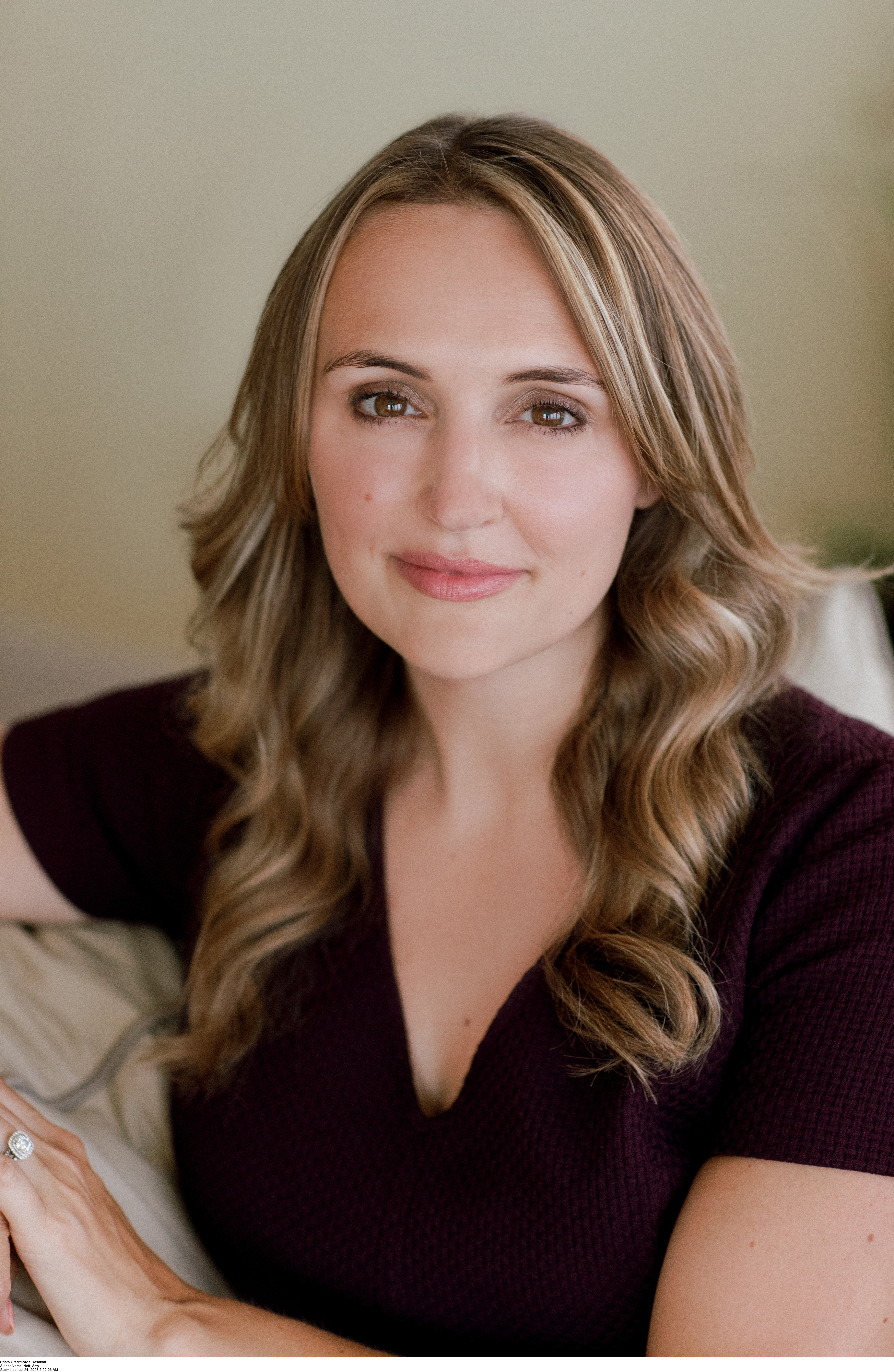 |
|
| Amy Neff (photo: Sylvie Rosokoff) |
|
Amy Neff's debut novel is The Days I Loved You Most (Park Row), a stunning love story and immersive family drama set in a New England beach town. Neff lives in Connecticut with her husband, two sons, and their rescue dog.
Joseph and Evelyn are genuine, fully developed characters, their marriage a remarkable example of lifelong devotion. Were they inspired by real people?
That means so much to hear, thank you. Joseph and Evelyn are completely works of fiction; their story is not my family story, although their setting is inspired by my family place. That said, I was lucky to have great examples growing up which have informed my definition of love. My grandparents had a beautiful marriage for over 50 years, until we lost my grandfather swiftly and unexpectedly to cancer. The years my grandmother lived without him always struck me as bittersweet, seeing grandchildren marry and snuggling great grandchildren, but not being able to share those happy moments with the one she loved most.
Jane refers to her parents' relationship as "impenetrable, a united front to a fault." What is the cost of this exceptional, almost exclusionary, marital bond for the rest of the family?
Their great love affects each of their three children in different ways. Jane, their oldest, is disillusioned by a damaging relationship in her past, and bristles against the idea that you need another person to be complete. Thomas is extremely private and guards his emotions, prioritizing his career over his marriage. Violet, their youngest, idealizes her parent's relationship as a fairy-tale romance, and the reality of her own marriage always pales in comparison. Their children have always understood that if forced to choose, their parents would choose each other, and that devotion turns into the catalyst for Joseph and Evelyn's unthinkable decision.
Stonybrook is a fictionalized version of the New England beach town where your family summered. Which aspects of your own experiences did you incorporate into the book?
I wanted to explore all that comes with committing not only to another person, but to a place. I grew up spending summers on a shared lot with my extended family. The two cottages were revolving doors of cousins, aunts and uncles, and my summers were filled with sun-soaked beach days and big family dinners with people shouting over each other to be heard. It was the most beautiful chaos and an idyllic childhood. It is a very special place to me, and the sense of calm and belonging I feel along the shore imprinted on me so deeply I wanted to capture those feelings within the pages of this book.
At its core, The Days I Loved You Most is a captivating love story with Joseph and Evelyn as the primary narrators, but it also includes the perspectives of their three adult children. What made you decide to add Jane, Thomas, and Violet?
When I set out to write this novel, it was important to me that it remained first and foremost a love story. Originally, and for many drafts, the only two points of view were Joseph's and Evelyn's. An editor I worked with along the way made the case for hearing from their children, because as much as it is a love story, it is also a family story, and the decisions made between them don't exist in a vacuum. I loved writing those three chapters because they give crucial context and alternate perspectives to explore. I had spent so much time with the family that their voices came easily, as though they had been banging on the door, relieved to finally be let out. I'm so glad they got to speak for themselves.
You mention that The Days I Loved You Most has been a lesson in novel writing. May I ask you to expand on that and share insight into the challenges of breaking into the publishing industry as a debut writer?
I have always been an avid reader, so I had a sense of what worked, and had been writing all my life. But I embarked on this journey blissfully naïve, for the fun and challenge of it, and followed where it led. I learned a lot about structure and pacing as I went, but I think some of the magic for me was the not knowing. I wasn't trying to hit certain beats, or follow a formula. These things can be incredibly helpful, and certainly is more efficient. But the meandering was all discovery and play. When I took the novel as far as I could on my own, I worked with editors that brought out different elements, and I learned so much from each draft. Breaking into the industry was much harder. It took me five years of querying this book to get a literary agent. Each batch of rejections, I revised again. I dug in deeper, uncovering layers to the characters, their motivations and fears, and the book was better for every year spent working on it.
How would you describe your creative process?
I am very disciplined. I like yellow legal pads and notecards and carving out overly ambitious schedules. To revise, I'd break down the weeks or months it would take, and then divide the number of chapters based on that timeframe. For the better half of my writing journey, I was pregnant and/or raising babies and toddlers full time. I don't write every day. It's not possible for this phase of life, at least for me. But I made time where I could, in early mornings, late nights, during the short-lived era of naptime, and in the rare stretches I could steal away thanks to sitters and grandparents. I took my self-imposed writing schedule seriously, long before there was anyone else holding me accountable. I found a way to move forward, even if I only had minutes. And there were stretches when I didn't touch the book at all. There are chapters that I wrote in one sitting, and ones that have been reworked and threaded throughout, and many scenes that were written and cut completely. I wrote far more than what ended up in the final version, and that helped me understand my characters on a far deeper level.
Do you have advice for fledgling authors launching their writing life while navigating the demands of raising a family?
Be patient with yourself. There is such an emphasis on getting published quickly, and getting your book out there fast. Don't buy into this. My journey was 10 years long. I started querying before I had children, and my children are now three and nearly five. It's not a race, and it's okay if it takes longer than you expect. My book is better for the years spent in revisions. Outsource what you can, ask for help. Take your writing seriously. Carve out time, but remember this season with your family is precious and fleeting, too. It's okay to not write every day. Stick with whatever you can commit to. The only one who can write your book is you, but give yourself grace when inevitably someone throws up, or your perfect flow is interrupted by someone needing to be wiped. As long as you keep going, you'll get there. --Shahina Piyarali
Rediscover
Rediscover: Edna O'Brien
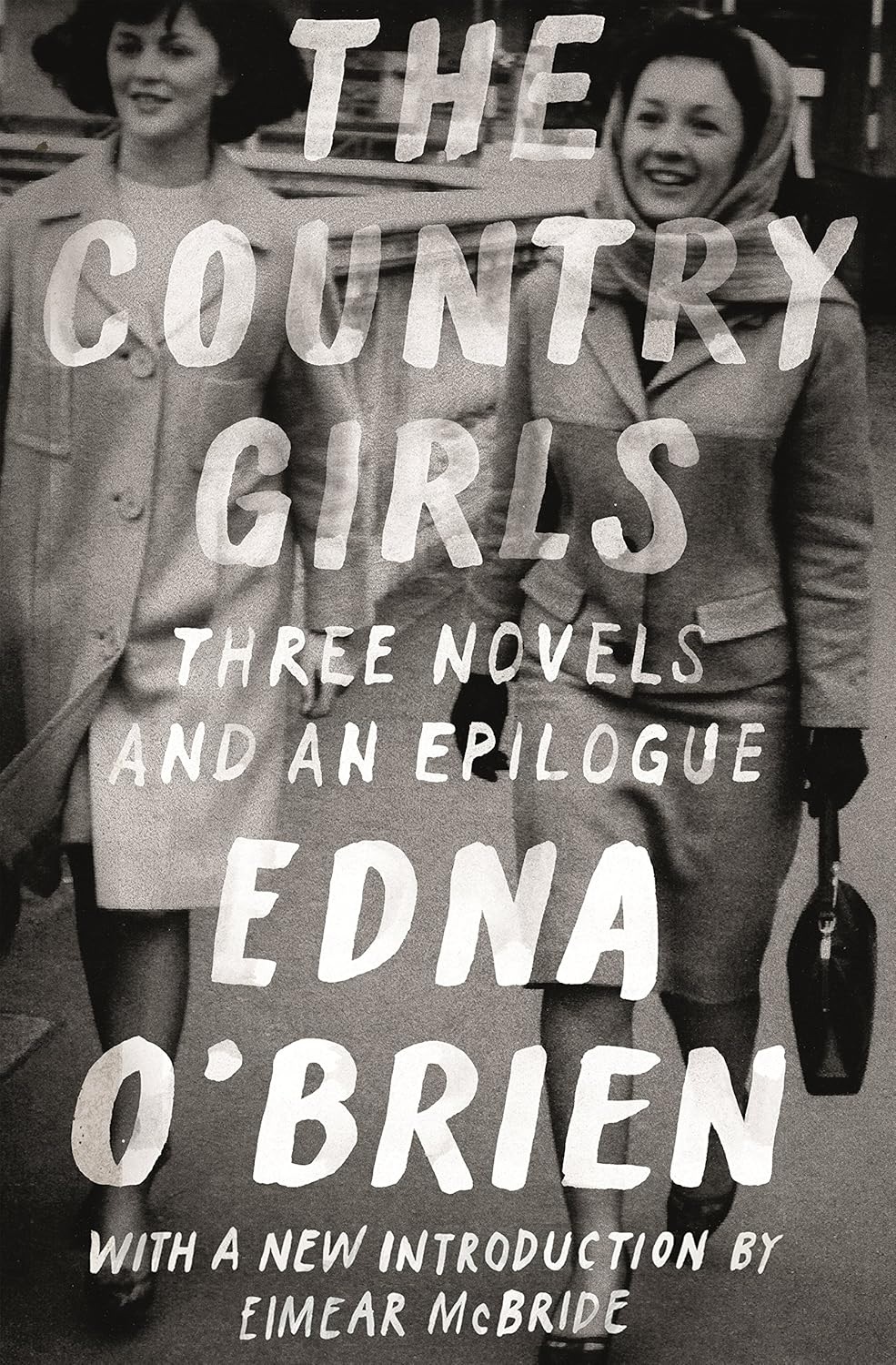 Irish author Edna O'Brien, who explored the complications and contradictions of women's lives in a literary career lasting more than half a century, died July 27 at age 93. In a series of novels beginning with The Country Girls "that were at first banned in Ireland but feted abroad, O'Brien gave voice to women struggling with the oppressive and hypocritical expectations of rural life," the Guardian wrote. "Her focus widened in later works such as House of Splendid Isolation and The Little Red Chairs, but always maintained the keen intelligence and daring that made Philip Roth once hail her as 'the most gifted woman now writing fiction in English.' "
Irish author Edna O'Brien, who explored the complications and contradictions of women's lives in a literary career lasting more than half a century, died July 27 at age 93. In a series of novels beginning with The Country Girls "that were at first banned in Ireland but feted abroad, O'Brien gave voice to women struggling with the oppressive and hypocritical expectations of rural life," the Guardian wrote. "Her focus widened in later works such as House of Splendid Isolation and The Little Red Chairs, but always maintained the keen intelligence and daring that made Philip Roth once hail her as 'the most gifted woman now writing fiction in English.' "
In 1950, after leaving a convent where she was being educated and considered being a nun, she married writer Ernest Gébler against her family's wishes--a hurried decision she described in 2011 as going "from them, to him; from one house of control, to another." The couple moved to London with their two sons in 1959, and O'Brien started working as a reader for the publisher Hutchinson, which soon commissioned her to write a novel.
The Country Girls, written in three weeks, "was swiftly banned in Ireland, as were O'Brien's next six novels, beginning with two sequels that completed The Country Girls' inevitable trajectory: 1962's The Lonely Girl, and 1964's mordantly-titled Girls in Their Married Bliss," the Guardian wrote.
After her marriage ended in 1967, O'Brien continued to publishing novels and story collections, including A Pagan Place, Time and Tide, House of Splendid Isolation, Down by the River, Wild Decembers, In the Forest, Girl, August Is a Wicked Month, and The Little Red Chairs. She also wrote a short biography of James Joyce in 1999 and Byron in Love, about the poet's love life, in 2009. Her play Virginia was about Virginia Woolf. Some of her novels were less autobiographical and featured protagonists who included a Serbian war criminal masquerading in Ireland as a sex therapist, an IRA killer, a serial killer, and girls abused by Boko Haram. Her memoir, Country Girl, was published in 2012.
Her awards included the 2001 Irish PEN lifetime achievement award, the 2006 Ulysses medal from University College Dublin, the 2011 Frank O'Connor International Short Story Award for "Saints and Sinners," the 2018 PEN/Nabokov Award, and the 2019 David Cohen Prize for Literature. In a move that demonstrated changed attitudes in Ireland, President Higgins awarded her the country's highest literary accolade, the Saoi of Aosdána, in 2015. Also, in 2018, she was made a Dame of the Order of the British Empire.
In a statement, Irish President Michael D. Higgins said, "Through that deeply insightful work, rich in humanity, Edna O'Brien was one of the first writers to provide a true voice to the experiences of women in Ireland in their different generations and played an important role in transforming the status of women across Irish society. While the beauty of her work was immediately recognized abroad, it is important to remember the hostile reaction it provoked among those who wished for the lived experience of women to remain far from the world of Irish literature, with her books shamefully banned upon their early publication. Thankfully Edna O'Brien's work is now recognized for the superb works of art which they are."
Faber, her publisher, called O'Brien "one of the greatest writers of our age. She revolutionised Irish literature, capturing the lives of women and the complexities of the human condition in prose that was luminous and spare, and which had a profound influence on so many writers who followed her. A defiant and courageous spirit, Edna constantly strove to break new artistic ground, to write truthfully, from a place of deep feeling. The vitality of her prose was a mirror of her zest for life: she was the very best company, kind, generous, mischievous, brave."
"In some ways I suppose a lot of the material of my life has been ripe for literature, but a bit of a handicap for what is laughingly called everyday life," she said in 1999. "But that's the bargain. Mephistopheles didn't come, you know. He was already there."
In the New York Times, critic Lucy Scholes recalled interviewing O'Brien in 2015: "At one point, we discussed critics who'd diminished her subject matter as 'the narrow world of the heart.' She'd almost roared her response. 'Well, the heart ain't that narrow, and the heart keeps beating!' "
An omnibus edition of Country Girls, The Lonely Girl, and Girls in Their Married Bliss titled The Country Girls: Three Novels and an Epilogue is available from Farrar, Straus and Giroux.
| Advertisement Meet belle bear! |


